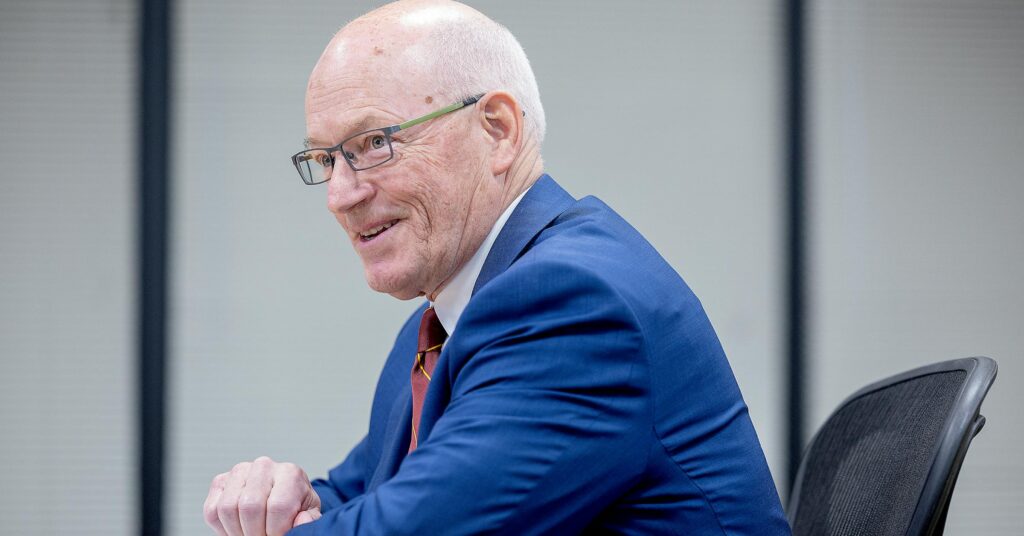The University of Minnesota is under intense scrutiny after it was revealed that former finance chief Myron Frans, now a health care consultant for the university, is earning $800 per hour. In his first year as a consultant, Frans has amassed approximately $1.1 million, making him one of the highest-paid individuals at the university. This revelation comes as the university grapples with budget constraints that have led to job cuts and accusations of administrative bloat.
Frans’ lucrative consulting fees have raised eyebrows, particularly as he negotiates a new deal for a revamped health system that could impact funding for Minnesota’s largest medical school and the university’s specialty care. Critics, including James Farnsworth, a member of the university’s Board of Regents, have expressed concern over the appropriateness of such fees at a public, state-subsidized institution.
Consulting Fees Under the Microscope
University officials defend Frans’ compensation, arguing that his expertise is crucial for ongoing negotiations with Fairview Health Services. The partnership, known as M Health Fairview, operates hospitals and clinics while funding research and training for health professionals. Frans was tasked with brokering a new deal before the current partnership expires in 2026.
“The compensation for these contributions aligns with projects of this magnitude, importance and complexity, and is comparable to averages for health care industry expertise required for this work,” the university stated.
However, the high fees have sparked debate, particularly as the university’s Board of Regents recently approved a $5.1 billion budget criticized for prioritizing administrative costs over academic programs. The university’s decision to raise Frans’ hourly rate from $700 to $800 and remove the cap on his billable hours for 2025 has only intensified the scrutiny.
Broader Implications and Expert Opinions
Frans’ role as a consultant has been pivotal, yet controversial. While some view his extensive experience in public service, finance, and health care as invaluable, others question the necessity of such high fees. Richard Painter, a professor of corporate law at the university, criticized the decision, stating, “He’s not a hospital manager — that’s not his industry sector.”
Rep. Kristin Robbins, R-Maple Grove, echoed these sentiments, highlighting the broader issue of high administrative pay contributing to the rising cost of college education. “He more than doubled his salary, becoming a consultant,” Robbins remarked.
Challenges in Negotiations and Internal Discontent
Frans’ negotiations have not only been financially contentious but have also faced internal challenges. A group of 26 department heads within the Medical School expressed frustration over the lack of progress in reaching an agreement, warning that the future success of the Medical School is at risk if the Fairview contract is not effectively renewed.
“We have concerns with how the process to define our clinical future is unfolding and are deeply uncertain about the future success of the Medical School,” they wrote in a letter to the regents.
Comparative Analysis and Future Outlook
While Frans’ earnings are significant, they are not unprecedented at the university. Records show that only a few individuals, such as football coach P.J. Fleck and men’s basketball coach Ben Johnson, have higher compensation packages. University officials argue that comparisons between Frans and athletic staff are inappropriate due to the distinct nature of their roles.
Gregg Goldman, the university’s executive vice president for finance and operations, emphasized the complexity of Frans’ consulting role, which has evolved from a part-time engagement to a more demanding position due to the intricate nature of the negotiations.
“What was envisioned by interim president Ettinger as a part-time engagement has led to a lot more hours than were originally planned because of the complexity,” Goldman explained.
As the University of Minnesota continues to navigate these financial and strategic challenges, the debate over consulting fees highlights the broader issues of administrative spending and resource allocation within higher education. The outcome of the negotiations with Fairview Health Services will likely have significant implications for the university’s future, particularly in terms of its medical and academic programs.
About The Author
 GE Aerospace Faces Potential Downturn Amid Bear Put Spread Strategy
GE Aerospace Faces Potential Downturn Amid Bear Put Spread Strategy Trump’s Tariffs to Cost U.S. Employers $82.3 Billion, Analysis Reveals
Trump’s Tariffs to Cost U.S. Employers $82.3 Billion, Analysis Reveals How to Sell Gold in NYC’s Diamond District: Expert Tips for Top Deals
How to Sell Gold in NYC’s Diamond District: Expert Tips for Top Deals Tesla’s Sales Dip Amid Shift to Autonomous Driving Focus
Tesla’s Sales Dip Amid Shift to Autonomous Driving Focus NYT Connections July 2, 2025: Unraveling the Puzzle’s Complex Themes
NYT Connections July 2, 2025: Unraveling the Puzzle’s Complex Themes